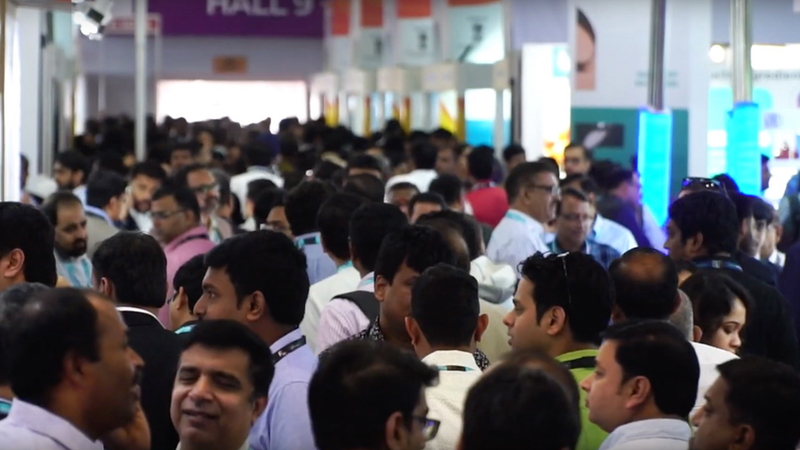Scientific Research Is A Choice Of Life
Views : 1631
Author : Leonhard
Update time : 2012-06-13 23:38:00
Recently, the large-scale withdrawal of Chinese papers by foreign journals has been raging. The Japanese Institute of Physical Chemistry and the resignation of Ye Yiliang are reminiscent of omnipotent stem cell fraud. Coupled with some controversial scientific research events, the sacred research hall seems to be some people. Vanity Fair.
However, if you have more contact with scientists, you will see more devout "cultivists" in the sacred scientific research hall. They are fascinated by scientific research, and they are clean and ethical; they have made great achievements, but they are still willing to contribute quietly and seek peace and tranquility.
After contacting Professor Shi Songtao, I am more convinced of this view.
I met with Shi Songtao, or he just went to work at the University of Pennsylvania. At that time, he had just served as the head of the Department of Anatomy and Cell Biology at the School of Stomatology from the University of Southern California to Penn. In his laboratory, Shi Songtao had a long conversation with the Science and Technology Daily reporter.
Since then, I have decided to write an article about Shi Songtao, and I have determined that the focus of the article is not on scientific research. Although Shi Songtao's research results are excellent, it is the main reason why I am looking for him.
What I want to share more is Shi Songtao’s scientific research story.
Thinking caused by a tooth
When the daughter's first deciduous tooth fell, Shi Songtao took it for a long time.
At this time, he is working on stem cell research at the National Institutes of Health in Maryland. But as a dentist with a US medical license, he wants to take a good look at her daughter's deciduous teeth; as a father, he feels that this tooth has a mysterious connection with himself.
When he saw the pulp on his teeth, he suddenly thought: Is this related to the stem cells being studied? Does the deciduous teeth also contain stem cells?
When the daughter's second baby tooth was about to fall, Shi Songtao was ready early. As soon as the tooth fell off, he put it in a test tube with the culture solution and rushed to the laboratory for research overnight.
Opportunities always patronize prepared people. After performing stem cell isolation and culture experiments, Shi Songtao discovered a new stem cell that has never been discovered before, the deciduous deciduous stem cells.
Time flies, the little girl of that year has gone to college. Shi Songtao has also become a world-renowned expert in stem cell research. Together with his collaborators, he also discovered a series of stem cells such as dental pulp stem cells, periodontal ligament stem cells, apical papillary stem cells, tendon stem cells and gingival stem cells. In the use of stem cells for disease treatment, he and his collaborator Jin Yan of the Fourth Military Medical University, Wang Songling of Capital Medical University, and Zhou Yanheng of Peking University, etc., used stem cells to successfully regenerate various tissues such as teeth and use stem cells. Systemic lupus erythematosus was successfully treated. He has also achieved important results in the research of stem cell treatment of disease mechanisms.
Shi Songtao's research field has long been confined to the original oral profession, but now he still has a soft spot for teeth. He told reporters: "I hope that in the future, like the storage of cord blood, build a human dental library and store the deciduous teeth, so that if there is a need in the future, you can use the stem cells of the teeth to treat the disease."
If you hold on to your ideals, you will get happiness.
"You have a working experience in a Chinese hospital, and a private dental practice license in the United States. Why not be a private dentist? This is a dream that many people in the United States dream of!" the reporter asked.
"I have been a private dentist for a year. The life is very comfortable, but there is a feeling that I can't tell." Shi Songtao replied.
“I went to the countryside in the countryside and went to work in the factory after returning to the city. Later I got the college entrance examination and I was lucky enough to be admitted to the university in 1978.” Shi Songtao seems to have turned a topic. “The university was very good at that time, we Everyone feels full of fulfillment. Everyone feels that there is a pursuit. I feel that the future is in my own hands. I feel that life has an ideal and a desire." He did not seem to answer my question, but also seemed to answer my question.
"I have been doing clinical work in China for a few years before coming to the United States. I hope that the final destination of my research will go to clinical application." Shi Songtao said, "The original biomedical research was to solve clinical problems because some The disease can't be cured, and we need to find new ways. Now I am going back to China and talking with young people. I find that they are very energetic. I hope that their research is not only for publishing papers, but also for solving real problems."
So far, Shi Songtao has published more than 160 peer-reviewed papers in journals such as "Nature Medicine", "Cell Stem Cells" and "Lancet". Google statistics show that the number of citations has exceeded 20,000. In the conversation, Shi Songtao did not mention his article to the reporter once, but showed some achievements in clinical application.
"Look, this tooth is repaired by stem cell technology after trauma. The final regeneration effect is so good." He showed the reporter two pictures.
Shi Songtao and domestic collaborator Sun Lingyun of Nanjing University beginnered the use of mesenchymal stem cells to cure systemic lupus erythematosus, and the research level has been in the forefront of the world. "Many patients with lupus erythematosus, some of whom have reached the advanced stage, have recovered through stem cell therapy. I feel really happy when they are sick." When it came to this, Shi Songtao had a smile on his face.
Is a habit
The field of stem cell research is constantly raging. Huang Yuxi, who was previously named a "national hero" and "chief scientist" in South Korea, was ruined by stem cell research and fraud. Recently, the Japanese "academic goddess" Xiao Baofang was arrested for her own research on stem cell research papers. Talking about stem cell research with Shi Songtao, it is inevitable to talk about academic integrity.
"Fake is a quality issue, and scientific research will be discovered sooner or later." Shi Songtao seems to be full of confidence in solving this problem.
At the same time, Shi Songtao expressed another concern for young Chinese students: "Now some young people from China do not want academic fraud, but they are not practical enough. If they are not practical, research will be problematic."
Shi Songtao did not rumor one thing he had experienced. He directed a student from China to write a thesis. The experiment was very good. After writing the article, he found that there was a problem with the map. "Although it is not fake, it is an alarm." He added, "Strictness is a habit. We Chinese should be more Strictly demand yourself and earn us a good reputation."
He suggested that China's stem cell research should be calm, and make breakthrough research, and dare to fight for the world. “The Chinese do not lack articles, but they lack more original research results.”
"Now in the field of stem cell research, there is more and more respect for China in the world." Shi Songtao believes that China's stem cell research is making continuous progress, and some research is already at the global leading level. He even expressed confidence in Chinese stem cell research from the perspective of Chinese culture: "Now research shows that stem cell therapy depends not only on the injection of stem cells, but also on receptors. The two interact and balance, much like China. The concept of yin and yang in traditional medicine."
 CPhI Middle East & Africa
CPhI Middle East & Africa
 CPhI India 2019
CPhI India 2019
 CPhI Worldwide 2019 Frankfurt Booth 10D09
CPhI Worldwide 2019 Frankfurt Booth 10D09